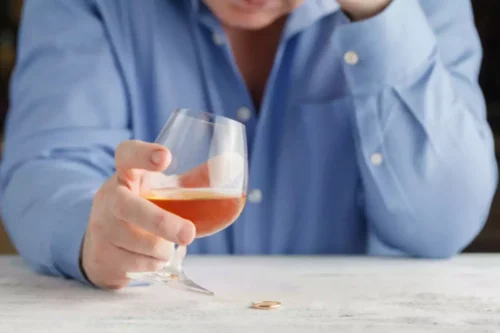Underage DUI Consequences and Penalties DuiDrivingLaws org


However, a violation of the honor code won’t necessarily get you booted out of school. For first violations, universities often employ less serious measures such as a formal warning or community service. In every state, a motorist—regardless of age—can be convicted of a standard DUI for driving while under the influence of (impaired by) drugs or alcohol or with a blood alcohol concentration (BAC) of .08% or more (a “per se” DUI). A standard DUI is generally a misdemeanor—which is considered a criminal offense in all states.
The New York Times
Lowering the MLDA would make 18- to 20-year-olds subject to the same laws enforced for those 21 and over. In a recent editorial in The BMJ, a trio of scientists pointed out that there are three periods in life when the brain goes through major changes and is particularly vulnerable to the effects of alcohol. When pregnant women drink alcohol, it can damage the developing brain of the fetus, leading to physical problems, learning disabilities, and behavioral problems. When people over the age of 65 drink alcohol, it can worsen declines in brain function that happen during aging.

Effects of short-term alcohol use
Moreover, manyunderage individuals who start heavy drinking in their late teensgive it up as they reach their late 20s and 30s. The committee hascarefully considered the evidence on this important issue—the extentto which early drinking causes later drinking problems, reducesthem, or has no effect at all. Clearly predisposition and earlyalcohol use interact, and the effect of alcohol varies according tothe degree of vulnerability of different individuals. However,notwithstanding the complexity of the inquiry, the committeeconcludes that the evidence establishes a prima facie case regardingthe negative effects of early drinking on long-term welfare. The national minimum drinking age was established in 1984, when Congress passed a law penalizing states that allowed anyone younger than 21 to buy alcohol. Several studies included in this review compared binge drinking and drunk driving accidents before and after states increased the drinking age in the 1980s.
Why Do Teenagers Drink Alcohol?
A law that would have permitted underage beer and wine consumption at eateries or at family gatherings with parental consent was submitted in 2017, but it was never advanced or passed. Alcohol withdrawal can be difficult and, in some cases, life threatening. Depending on how often you drink and how much, consequences of drinking you may need support from a healthcare professional if you want to stop drinking. Long-term alcohol use can affect bone density, leading to thinner bones and increasing your risk of fractures if you fall. Excessive drinking may affect your menstrual cycle and potentially increase your risk for infertility.
- The term “medical exception” is typically used to describe goods and medications that include traces of alcohol.
- Young people who drink alcohol are more likely to engage in risky behaviors that can lead to injuries and other health conditions.
Free Healthbeat Signup
These effects might not last very long, but that doesn’t make them insignificant. Impulsiveness, loss of coordination, and changes in mood can affect your judgment and behavior and contribute to more https://ecosoberhouse.com/ far-reaching effects, including accidents, injuries, and decisions you later regret. Alcohol can cause both short-term effects, such as lowered inhibitions, and long-term effects, including a weakened immune system. If you’re concerned about someone drinking underage, talk to them openly and provide alternatives. BetterHelp can connect you to an addiction and mental health counselor. Young people are still learning reasonable judgment and how to handle peer pressure.
Underage drinkers are more likely to be arrested for disorderly conduct, drunk driving, assault, and vandalism. Even if the younger person manages to get their alcohol use under control, the legal consequences of underage drinking can be life-long problems. Teenagers who drink are more likely to suffer from alcohol poisoning, have social problems or engage in violence. Children or teenagers start drinking for many reasons, such as stress or major life transitions.
Experimentation, rebellion, peer pressure, and socializing can all contribute to underage drinking. Many young people are also preoccupied with how they look and how their peers perceive them. Underage drinking tends to be a social activity, but this doesn’t mean young drinkers are forming strong friendships. Although much of the focus tends to be on the legal aspects of underage alcohol use, significant health issues are also a concern because teenage brains are still developing. In 2009, an estimated 1,844 homicides; 949,400 nonfatal violent crimes such as rape, robbery, and assault; and 1,811,300 property crimes, including burglary, larceny, and car theft were attributed to underage drinking. Facts About Teen Drinking is a resource for teens, created by the National Institute on Alcohol Abuse and Alcoholism, with research-based information on underage drinking.


For example, adolescents are more likely to drink when their parents binge drink. A 5% increase in adult binge drinking leads to a 12% increase in the chances that the children or teenagers around them will drink. There are an estimated 10.8 million underage drinkers in the United States, with one out of every six teenagers engaged in some form of binge drinking.

That commonsense view of adolescent human nature,coupled with the fact that underage drinking is illegal,provides some justification for ignoring the pleasures ofdrinking as perceived by teens and accounting only for theharmful consequences. However, additional research to further refineunderstanding of the interaction of the multiple interrelatedfactors on long-term outcomes is warranted. Young people are more likely to drink if at least one parent or guardian in their family has a history of alcohol use or alcoholism. If parents don’t teach their children about the negative effects of alcohol, they’re also more likely to drink underage. The physical, mental, and emotional health issues related to underage drinking are extreme. Combine a lack of consequences with the thrill of breaking the law, and MLDA 21 actually encourages underage drinking and potentially other illegal activities, such as driving while intoxicated and illicit drug use.
Underage Drinking Statistics
In sum, the cost of underage drinking to society is substantial.Society is affected by loss of young lives, lost productivityand significant health care costs and stands to gain fromreductions in underage drinking. The committee concludes thatthe PIRE estimate of $53 billion, while perhaps somewhat low, isa reasonable starting point for assessing social costs. Of course in practice there is no way to entirely eliminateunderage drinking. But the total cost is nonetheless of someinterest as a guide to how underage drinking can be comparedwith, say, cancer or illiteracy or terrorism in setting nationalpriorities. The total is also useful to the extent that apartial reduction in underage drinking may confer benefit inproportion to the total. Thus, the study suggests that a 10percent reduction would be worth about $53 per household, or 10percent of the total cost per household.